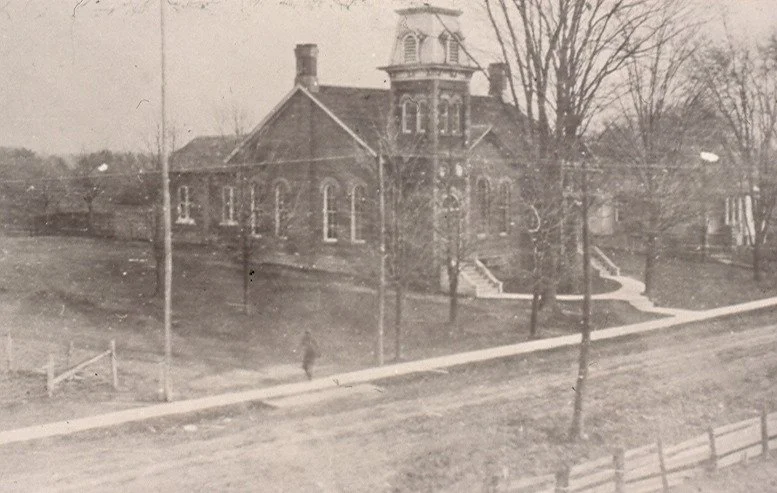Reflecting on Black History Month in Mississauga
/Birth Registration for Alexander Duncan, 1871
Every February, people across Canada participate in Black History Month events and festivities that honour the legacy of Black people in Canada and their communities.
The 2024 theme for Black History Month is: “Black Excellence: A Heritage to Celebrate; a Future to Build”. This theme celebrates the rich past and present contributions and accomplishments of Black people in Canada, while aspiring to embrace new opportunities for the future.
The theme aligns with the 10th year of the International Decade for People of African Descent.
Here at home in Mississauga, we have some incredible stories to share that explore Black History, both from years gone by and from the present-day city.
Looking back in time, one fascinating story arises from the Duncan family from 1861. Benedict Duncan (1825-1903) was a slave in Maryland for 28 years and escaped to Canada around 1855. In 1861 we find Benedict living in historic Mississauga, likely in the vicinity of Dundas Street and Dixie Road. The 1861 census shows Benedict, aged 30, living with his wife Elizabeth, aged 28, and their son Jeremia, aged 1. Living beside them was Levi and Lydia Duncan, both aged 27. Benedict, Elizabeth, Levi and Lydia were Black and were all born in the United States, whereas Jeremia had been born in Upper Canada. At the time both families were living in log cabins. Both Benedict and Levi were listed as labourers. We know very little about Levi and Lydia Duncan, and do not know the relationship between the families, despite the shared surname.
Birth Registration for Amon Duncan, 1869
Benedict Duncan recounted part of his story in the book “The Narratives of Fugitive Slaves in Canada” by Benjamin Drew (1856):
“I was a slave in Maryland, twenty-eight years. My father taught me my letters, and I had sometimes the privilege of going to the Sunday school, where I was further taught by a white teacher … Sometime I did not get enough to eat, nor have clothes enough to make me comfortable … I left through fear of being sold, as my master’s business was going down hill. I experienced no trouble in getting off. I walked one hundred and fifty miles of the way. I remained in the States four months and then came over here a short time since … I had rather have a day free, than a week of life in slavery; I think slavery is the worst evil that ever was.”
Benedict Duncan and Elizabeth Haley, both of whom were born in Maryland, were married in Toronto in 1860, and together they likely had at least six children: Jeremia (1860), Benjamin (1861, also listed as Ben Scott), Levi (1864), Margaret Elizabeth (1867), Amon (1869), Alexander (1871) and Mary (1874).
Duncan from 1861 Census
The 1861 census shows that Benjamin was growing wheat, peas and carrots on his property to support his family, and likely to augment whatever income he may have received as a labourer. He also owned one calf, a horse and two pigs. We cannot find Benjamin in the property records as owning land, so he most likely was renting property, which would have been fairly common for those who did have the capital to purchase land.
Duncan from 1871 Census
Benedict and his family did not remain in historic Mississauga for very long. By 1871 the family had moved to Oakville, where they were members of the African Methodist Episcopal Church (Turner Chapel) in Oakville, which was also home to a larger Black community at the time. The Duncans were not the only early Black family to relocate to Oakville around the same time, as census records show the Hutchinson family also moved to Oakville and were also connected to the congregation at the Turner Chapel. One of Benedict’s descendants was noted Oakville historian Alvin Duncan (1913-2009).
We invite you to explore Black History stories in Mississauga.
Click here for Heritage Mississauga's Heritage Bytes podcast.














